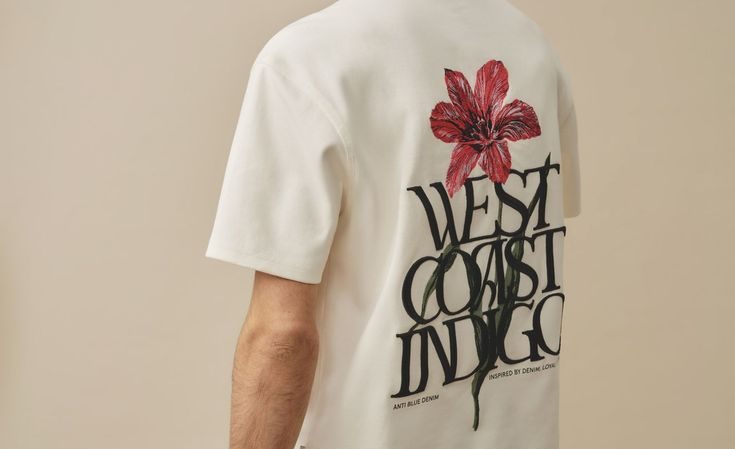
Introduction: A Sustainable Revolution in Fashion
The year 2025 marks a transformative period in the fashion industry, where sustainability is no longer a niche preference but a universal expectation. T-shirts, once mass-produced without concern for environmental impact, now embody the values of a conscious generation. Eco-friendly fabrics have emerged as the new cornerstone of quality, style, and responsibility, reshaping how we view everyday wardrobe essentials.
The Rise of Conscious Consumerism
Modern shoppers are demanding transparency, accountability, and integrity from brands. The quest for eco-friendly t-shirts is driven by an awareness of the textile industry’s environmental footprint. Carbon emissions, water pollution, and unethical labor practices have prompted consumers to prioritize sustainable choices, shifting the market dynamics permanently.
Organic Cotton: The Timeless Classic
Among eco-friendly materials, organic cotton remains a foundational pillar. Grown without harmful pesticides or synthetic fertilizers, organic cotton t-shirts offer softness, breathability, and durability. Innovations in farming techniques have increased yields while preserving soil health, ensuring that organic cotton remains both sustainable and scalable.
Bamboo Fabrics: Nature’s Gift to Textiles
Bamboo, with its rapid growth and minimal water requirements, has become a star player in sustainable fashion. T-shirts crafted from bamboo fibers boast exceptional moisture-wicking properties, antibacterial qualities, and a luxurious feel. Additionally, advancements in closed-loop processing minimize chemical waste, enhancing bamboo’s eco-credentials.
Hemp: The Renaissance Fiber
Hemp’s resurgence as a premium textile is revolutionizing t-shirt production. Known for its strength, hemp requires minimal water and no chemical inputs to thrive. Its deep roots improve soil structure, making it a regenerative crop. T-shirts made from hemp blends offer rugged durability, lightweight comfort, and a natural resistance to UV rays and mold.
Recycled Polyester: Giving New Life to Waste
Recycled polyester, sourced from discarded plastic bottles and post-consumer waste, plays a vital role in reducing landfill overflow. Through innovative mechanical and chemical recycling processes, waste materials are transformed into high-performance fibers. T-shirts featuring recycled polyester blends maintain the aesthetic appeal of traditional garments while significantly lowering environmental impact.
Tencel and Modal: Sustainable Elegance
Derived from renewable wood sources like eucalyptus, beech, and spruce trees, Tencel and Modal fabrics embody elegance and eco-consciousness. Their production involves non-toxic solvents and closed-loop systems that recover and reuse water and chemicals. T-shirts crafted from these materials feel incredibly soft against the skin, offering breathability and lasting comfort.
Piñatex and Alternative Plant-Based Fibers
Pinatex, made from pineapple leaf fibers, exemplifies innovation in sustainable textiles. Lightweight yet strong, Pinatex t-shirts showcase a unique texture and contribute to agricultural waste reduction. Other emerging plant-based fibers, such as banana, lotus, and nettle, present exciting alternatives that blend style with environmental stewardship.
Waterless Dyeing Techniques
Traditional dyeing methods consume vast quantities of water and release pollutants into ecosystems. New technologies like waterless dyeing, CO2 dyeing, and natural pigment applications are revolutionizing the industry. Eco-friendly t-shirts in 2025 showcase vibrant colors achieved without compromising freshwater resources.
Biodegradable Dyes and Inks
Printing and dyeing processes are being reimagined to align with sustainability goals. Biodegradable dyes and inks derived from plants, algae, and minerals replace petroleum-based chemicals. T-shirts adorned with these natural hues decompose harmlessly at the end of their life cycle, leaving no toxic residues.
Zero-Waste Manufacturing Techniques
The concept of zero waste extends beyond fabrics to encompass production methods. Techniques such as 3D knitting, pattern minimization, and on-demand manufacturing ensure that every scrap of material is utilized. Eco-friendly t-shirt brands embrace these practices to drastically reduce offcuts and unnecessary waste.
Circular Economy and Closed-Loop Systems
The transition from a linear “take-make-dispose” model to a circular economy is essential for true sustainability. Brands now design t-shirts with end-of-life in mind, encouraging recycling, upcycling, and composting. Closed-loop systems allow old garments to be collected, broken down, and re-spun into new fibers, closing the sustainability gap.
Certifications That Matter
Third-party certifications validate eco-friendly claims and build consumer trust. Look for labels such as GOTS (Global Organic Textile Standard), OEKO-TEX, Fair Trade, Bluesign, and Cradle to Cradle when selecting t-shirts. These certifications guarantee that environmental and social standards are rigorously upheld throughout the production chain.
Ethical Labor Practices and Fair Trade
Sustainability encompasses not just the environment but also human dignity. Ethical t-shirt brands prioritize fair wages, safe working conditions, and empowerment initiatives for garment workers. In 2025, eco-friendly fashion and social responsibility are inseparable pillars of brand integrity.
The Role of Technology in Sustainable Fabric Innovation
Artificial intelligence, biotechnology, and nanotechnology are accelerating advancements in sustainable fabrics. AI optimizes supply chains for minimal waste, biotech creates lab-grown fibers, and nano-enhancements improve garment performance without toxic chemicals. These breakthroughs push eco-friendly t-shirts to new heights of functionality and style.
Consumer Education and Awareness
Empowering consumers with knowledge is critical to advancing the sustainable fashion movement. Brands invest in storytelling, transparent communication, and educational campaigns to highlight the importance of eco-friendly choices. Informed consumers make deliberate purchasing decisions that support a healthier planet.
The Influence of Influencers and Celebrities
Public figures championing eco-conscious brands help amplify sustainable fashion narratives. Celebrity endorsements, social media activism, and influencer collaborations bring widespread attention to the importance of eco-friendly t-shirts, making sustainability aspirational and accessible.
Mainstream Retailers Adopting Green Practices
Large-scale retailers are embracing sustainability to meet consumer expectations. Eco-friendly t-shirt collections are no longer confined to boutique brands but are featured prominently in major fashion houses and department stores. Mainstream adoption accelerates the normalization of eco-conscious clothing.
Design Aesthetics in Eco-Friendly T-Shirts
Sustainability does not sacrifice style. Designers focus on creating aesthetically pleasing t-shirts that rival conventional options in beauty and craftsmanship. Minimalist cuts, elegant prints, and thoughtful detailing define the visual language of eco-friendly fashion in 2025.
The Cost of Sustainability: Value vs. Price
While eco-friendly t-shirts may carry higher upfront costs, they offer long-term value through durability, ethical production, and reduced environmental impact. Consumers increasingly recognize that true value transcends monetary price, encompassing quality, responsibility, and purpose.
Global Impact and Local Empowerment
Sustainable t-shirt production influences both global ecosystems and local communities. Supporting smallholder farmers, indigenous artisans, and women-led cooperatives fosters inclusive economic growth and cultural preservation alongside environmental restoration.
The Future of Sustainable T-Shirt Fashion
Looking ahead, innovations such as carbon-negative fibers, self-cleaning textiles, and biodegradable performance fabrics promise an even greener future. As technology and creativity continue to converge, eco-friendly t-shirts will set new standards for the entire fashion industry.
Conclusion: Building a Wardrobe with Purpose
In 2025, eco-friendly fabrics are not just a trend — they are the foundation of a reimagined fashion world. T-shirts, as ubiquitous symbols of casual style, now embody a powerful commitment to environmental stewardship, ethical responsibility, and personal expression. Choosing an eco-friendly t-shirt is no longer simply a fashion statement; it is a conscious act of shaping a better future for generations to come.

Hi, this is a comment.
To get started with moderating, editing, and deleting comments, please visit the Comments screen in the dashboard.
Commenter avatars come from Gravatar.